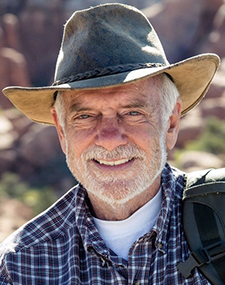Alumni and Friends Directory

Warner Woodworth
Title: Global Social Entrepreneur
Company: NGOs Worldwide
Location: Provo, UT
Connect on LinkedInEducational Background
MS, BS, Undergraduate Studies, University of Utah and BYU
MA, PhD, University of Michigan
Biography
Dr. Warner Woodworth is a global social entrepreneur who’s helped raise $1.4 billion over three decades for combating poverty and reducing human suffering. He’s linked many investors to achieving social and economic impacts. He is the author of 12 books and 360 articles while engaged in empowering the poor. He holds an M.A. and Ph.D. in organizational behavior from the University of Michigan, Ann Arbor. In the 1980s-90s, he became a fierce advocate for U.S. worker empowerment. He consulted with high-level groups to launch the worker ownership movement (ESOPs, i.e., Employee Stock Ownership Plans), as well lobbied Congress to create the National Cooperative Bank, both of which empower the lower income, blue-collar sectors of America.
With his Cornell partners, Professors William Foote Whyte and Christopher Meek, he did research and wrote Congress on behalf of groups seeking to preserve manufacturing jobs. With lawyers, labor leaders, corporate executives, and other professionals, they lobbied for support to save or reduce plant closings, aid communities that were losing their economic foundations, create greater equality, etc. Professor Woodworth traveled the country testifying in state and U.S. Senate hearings, advising the federal government in designing programs such as ESOPs and worker-owned cooperatives involving incentives for states to aid businesses in trouble, creating worker re-training programs, and more. Their initial efforts expanded rapidly as many Americans caught the vision of local economic resurgence.
Political leaders from the left and right agreed with strategies, from Ronald Reagan to Ted Kennedy, and others. Eventually, much legislation passed in Congress that led to a nationwide movement known as worker ownership. The ESOP strategy led to the eventual statistics that today include approximately 15 million Americans laboring in some seven thousand firms that they own, many of them owning 100 percent.
They may also have shop floor labor-management teams, as well as board seats that enable them to set strategies and policies for a better future. ESOP assets today total over $2 trillion. He was elected to the board of the National Center for Employee Ownership in Washington, DC, and current ESOP data can be found on their website, https://www.nceo.org/pages/nceo.php. With others, his drive to also foster worker-owned cooperatives ultimately led to the establishment of the National Cooperative Bank in Washington https://ncb.coop/ that has now funded over $6 billion in capital support. With its funding and technical assistance, there are now 30,000 co-ops across the U.S. such as manufacturing co-ops, housing co-ops, food co-ops, health co-ops, and many other cooperative models.
After two decades of building these mechanisms for economic well-being as a movement across America, Dr. Woodworth gradually shifted his efforts to fighting poverty in the Third World as described below.
In 1990 Professor Woodworth turned to the global poor to design and teach the first U.S. courses in Microcredit & Social Entrepreneurship using sustainable business strategies, topics now taught at over 600 American college campuses. With collaborators, he founded and/or has served on the boards of 41 NGOs including Mentors International (7 countries) https://mentorsinternational.org/, Ouelessebougou Alliance (Mali) https://lifteachother.org/, Unitus (23 nations), and HELP International (11 countries) https://help-international.org/. With major donors, they have generated sustainable development systems like fostering tens of millions of microenterprises and communal banks, building village schools, creating rural health services, empowering women, developing Square-Foot-Gardening technologies, improving child nutrition, providing literacy programs, and disaster recovery and rebuilding efforts after massive destruction from hurricanes, earthquakes, droughts or flooding, volcanoes, tsunamis, and civil conflicts.
In 2019 alone the NGOs and co-ops he and associates established during past decades grew to over 7.6 million clients living sustainably in a single year. At the time, they collectively raised $28 million and trained over 348,000 microentrepreneurs, before COVID-19 slowed things down. Dr. Woodworth has been honored with dozens of honors such as the Faculty Pioneer Award for global impacts from the Aspen Institute in NYC, the Social Entrepreneurship Teaching Award at the Skoll World Forum at Oxford University, and he was the first Peter Drucker Visiting Scholar in Social Entrepreneurship at the Drucker School, Claremont University in LA, plus many more recognitions.
He was also appointed by Nobel Peace Prize Laureate Muhammad Yunus to the Advisory Board of Grameen America in NYC. After decades of being an MBA professor at the Marriott School of Business at BYU, he’s now a visiting faculty member at the University of Utah in Salt Lake City. But Dr. Woodworth still enjoys spending most of his time and energy doing pro bono NGO consulting and laboring in impoverished villages across the world.


